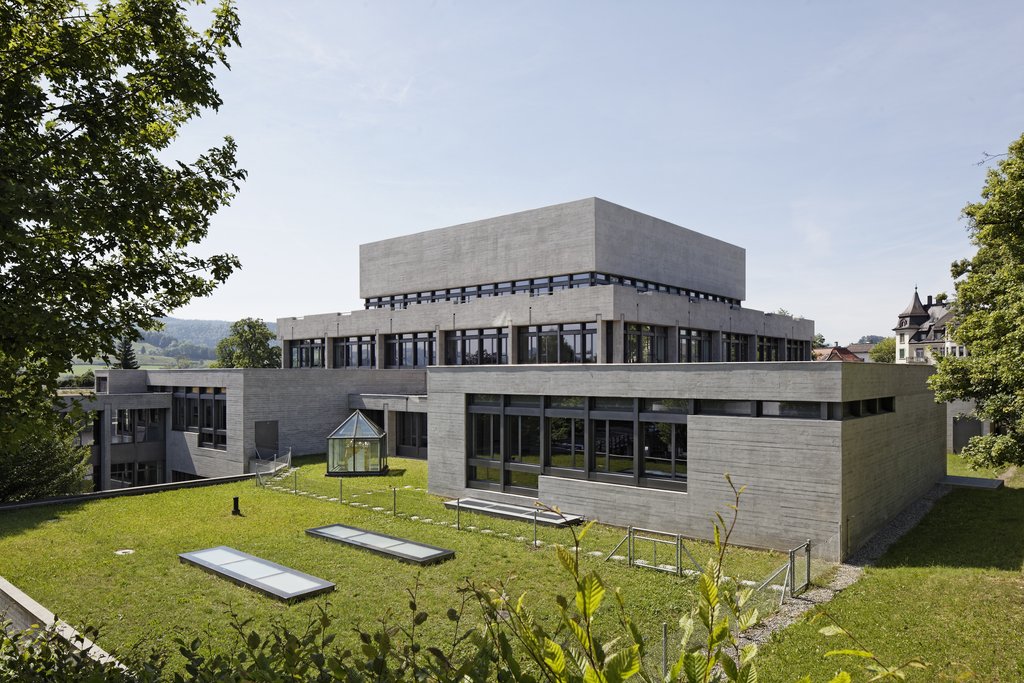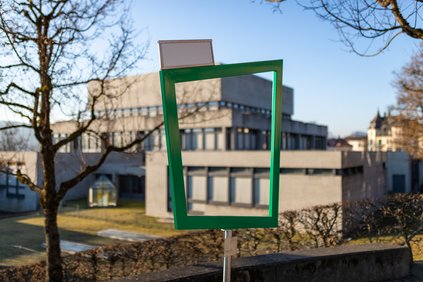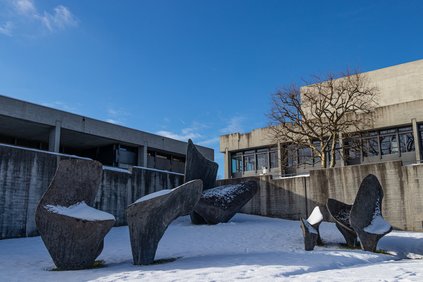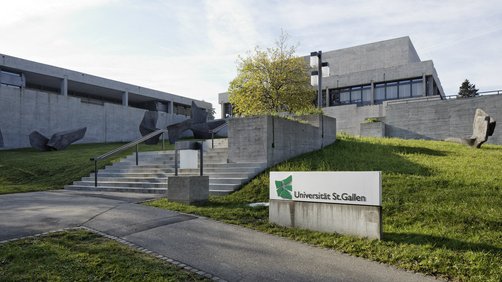Campus - 05.06.2023 - 11:25
Internal investigations: HSG relieves professor of duty as Institute director
Based on the report by the auditing group on the events at the Institute for Supply Chain Management, Prof. Dr. Wolfgang Stölzle was relieved of his duty as the Institute’s director with immediate effect. The University of St.Gallen has furthermore initiated further investigations, as recommended by the auditing group. The new University of St.Gallen Act and the recently passed doctoral degree reforms will be of crucial importance for future cases.

An overview is provided below of the investigation of the events at the Institute for Supply Chain Management (ISCM), the findings from the Disclosure Action and the review of allegations of plagiarism.
Prof. Dr. Wolfgang Stölzle and the Institute for Supply Chain Management
Prof. Dr. Wolfgang Stölzle is no longer director of the ISCM, effective immediately. The University of St.Gallen (HSG) has taken this measure on the basis of an ongoing administrative investigation and the report issued by the audit group, chaired by former federal judge Dr. Niklaus Oberholzer. Prof. Dr. Thomas Friedli is the Institute’s director until further notice, who was deployed as an adviser to the ISCM in February of 2023.
Not all allegations made by various parties against Wolfgang Stölzle have been substantiated. However, some serious allegations have been confirmed; regarding others, grounds exist for believing the allegations could be true. This is the case in particular with regard to significant shortcomings in management of the Institute and its staff, as well as the relationship with Wolfgang Stölzle’s private company. In summary, the audit group came to the following primary conclusions regarding Wolfgang Stölzle and the ISCM:
- The Institute was not integrated into larger University processes.
- The leadership culture was problematic.
- Personal interests were heavily entwined with the Institute’s interests.
Further clarifying efforts are being conducted in order to bring the administrative procedure to a conclusion. Further steps may be taken on that basis. In addition, the University Council has instructed the President's Board to develop solutions concerning the issues of professorial enterprises, sideline activities, the employment of family members and partners by this autumn, to be presented by late summer.
Conclusion of the Disclosure Action ("Aktion der Offenlegung")
Various recent events have shown that not all observed or perceived problems are reported via the regular procedures for internal complaints, or to the existing defined contacts. This led to Stefan Kölliker, President of the University Council, and President Prof. Dr. Bernhard Ehrenzeller calling upon University staff and students in January 2023 to contact the Zurich law firm Rudin Cantieni with any complaints as part of a Disclosure Campaign. Thirty-seven disclosures were received during the three-month time window, most of which were anonymous:
- None of these disclosures necessitated immediate action.
- Many of the instances reported concerned the situation with doctoral students. The recently enacted doctoral degree reform will yield substantial improvement in this regard (see below).
- In individual cases requiring clarification, the affected parties (if known) were asked to comment before the Rectorate decides on further measures.
- Institutional and cultural issues were also involved, which are being addressed, such as by raising awareness of the Code of Conduct on all levels. An information campaign will also be carried out in the autumn semester of 2023 to better familiarize the University staff and students with the responsible internal offices, the ombudsman and the whistleblower reporting desk and what they do, in order to strengthen confidence.
“We deeply regret that such an abuse of the culture of trust has occurred at the Institute mentioned. In the future, such conduct must be pointed out and remedied at an earlier stage. We furthermore regret that University staff or students have suffered injustice or been harmed by the incidents reported in the Disclosure Campaign. I assure you that the University of St.Gallen President's Board has learned lessons from these events and is taking action accordingly,” said President Bernhard Ehrenzeller at today’s media briefing.
Plagiarism allegations under investigation
The investigation of allegations of plagiarism against an honorary professor of the University of St.Gallen is progressing more slowly than anticipated. It has proved difficult to find suitable independent experts to carry out the review. After several rejected inquiries, two qualified external specialists agreed to work on the Commission until the end of April 2023. Obtaining the necessary external expert reports also took more time than expected. The University of St. Gallen will communicate the overall findings from this review as soon as possible. The University of St. Gallen is also in contact with the Technical University of Darmstadt, which formed a committee in February 2022 to review the dissertation submitted by the honorary professor.
The new University of St.Gallen Act and the doctoral degree reform will be crucial in strengthening the supervision and control ability of the University of St.Gallen, which has grown significantly in recent years, and for improving conditions for doctoral students.
New University of St.Gallen Act to bring improvements
The case of Wolfgang Stölzle and the ISCM is an example of how the current system of institution supervision, which relies heavily on cooperation and self-declaration, is in need of improvement. These problems have been recognized and several aspects addressed in the amendment of the University of St.Gallen Act, which gives the President's Board new instruments empowering it to supervise Institutes going forward. The University fully supports the draft amendment, which is now going before the Cantonal Council. The University hopes the bill will be passed in the Cantonal Council as anticipated, so it can enter into force at the start of 2024.
Doctoral degree reform passed
The doctorate as the highest-level university degree requires a high level of commitment on the part of both doctoral students and of their advisers. The University of St. Gallen endeavours to ensure optimal conditions for the doctoral degree process. Intensive efforts have been underway to reform doctoral degree regulations since 2020. The reform passed almost unanimously in the Senate—the University’s highest academic governance body—on 22 May 2023. The President's Board firmly believes that the reform will yield substantially improved work conditions for doctoral students. These include better employment terms with a minimum guaranteed research time of 40%, a doctoral study agreement defining the mutual expectations, regular staff and location reviews, a new mandatory external evaluation of dissertations and an independent dissertation committee chair.
More articles from the same category
This could also be of interest to you
Discover our special topics







![[Translate to English:] Plagiatsvorwurf: Die Position der HSG Hauptgebäude der Universität St.Gallen](https://www.unisg.ch/fileadmin/_processed_/4/b/csm_Architektur_Hauptgebaeude_11_299319d45f.jpg)







